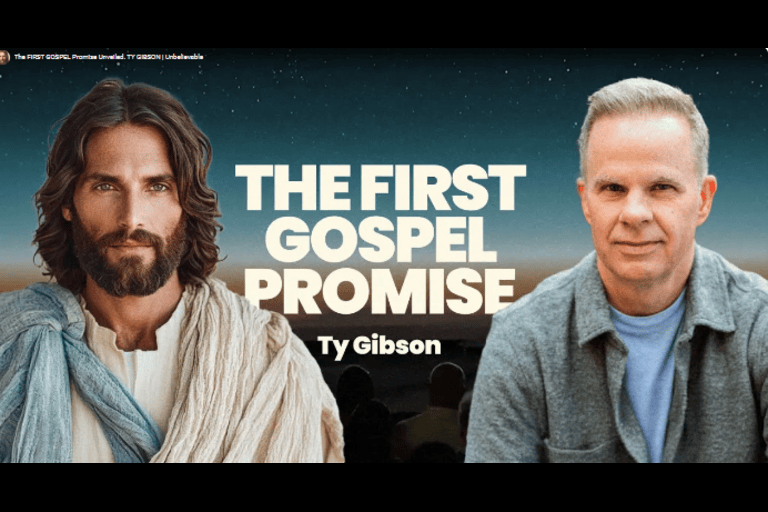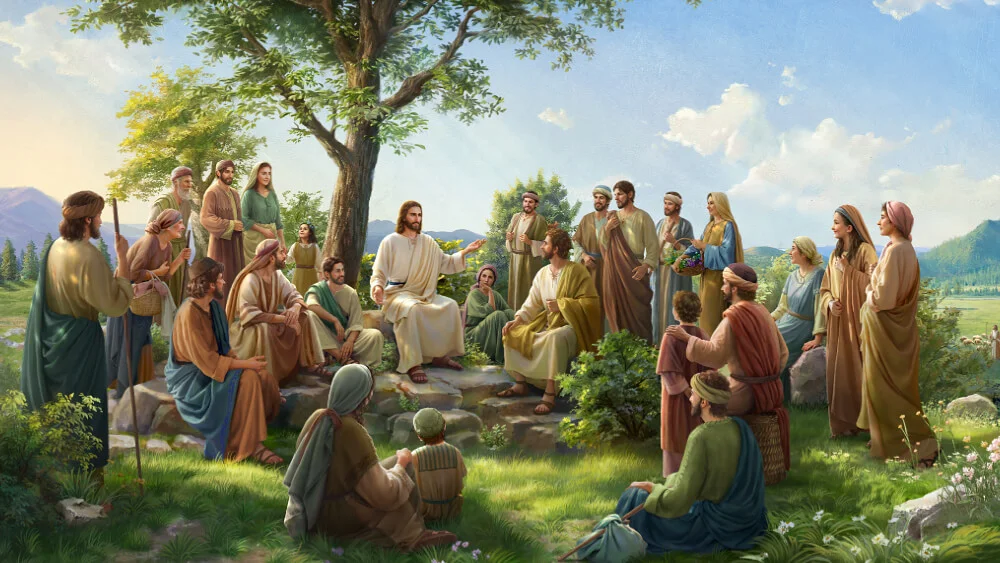Imagine this: It’s Friday evening, the sun dipping low on the horizon, casting a golden hue over your home. The week’s chaos fades—the emails unanswered, the deadlines unmet—and for the first time in days, you breathe deeply. No agendas, no screens, just you, your loved ones, and the quiet assurance that God Himself has woven this moment into the fabric of creation. This isn’t just any pause; it’s the Sabbath, a divine invitation to rest in the arms of a God who is love. In our hyper-connected, 24/7 world, where burnout is the norm and peace feels like a luxury, what if reclaiming this ancient gift could transform your life—and prepare your heart for the second coming of Jesus Christ?
As followers of Jesus Christ, we’re called not to legalism or salvation by works, but to a joyful rhythm that echoes God’s heart for humanity. The Sabbath isn’t a burden; it’s a blessing, a foretaste of eternity where we’ll dwell in perfect rest with our Savior. Yet, centuries of tradition have muddled its clarity. From Emperor Constantine’s decrees changing the day of worship from the seventh day to the first day of the week, to modern blue laws, society’s grasp on the true day of rest has shifted. Even today, voices like the late Charlie Kirk, who was a seventh-day of the week Sabbath keeper, remind us of its relevance. And as we navigate discussions around Project 2025, it’s time to ask: What does the Bible truly say about the seventh-day Sabbath? In this post, we’ll explore its biblical roots, historical twists, and timeless call— all from a worldview anchored in Scripture and infused with the love of Christ, preparing for the second coming of Jesus Christ. Let’s journey together, dear reader, toward the rest your soul craves.
Background Information: The Sabbath’s Divine Origins and Human Detours
To appreciate the Sabbath today, we must first trace its footsteps back to the dawn of time. The Bible doesn’t present the day of rest as a cultural whim or a negotiable suggestion—it’s etched into creation itself, a testament to God’s generous design.
The Biblical Foundation: A Seventh-Day Gift from Creation
In the opening chapters of Genesis, we see God’s masterpiece unfold over six days of purposeful work, culminating in the seventh: “Thus the heavens and the earth were finished, and all the host of them. And on the seventh day God ended His work which He had made; and He rested on the seventh day from all His work which He had made. And God blessed the seventh day and sanctified it” (Genesis 2:1-3, KJV). Here, the Sabbath emerges not as exhaustion’s aftermath, but as Holy Celebration. God didn’t need rest—He is infinite and omnipotent—but He modeled it for us, His beloved children, as a space to cease striving and simply be, a space in time.
This pattern echoes through the Ten Commandments, where the fourth declares: “Remember the sabbath day, to keep it holy. Six days shalt thou labor, and do all thy work: But the seventh day is the sabbath of the Lord thy God” (Exodus 20:8-10, KJV). The Bible is unequivocal: the Sabbath falls on the seventh day of the week, which, by Jewish and biblical reckoning, is Saturday. From sunset Friday to sunset Saturday, it’s a weekly anchor of worship, reflection, and renewal. Jesus Christ Himself honored this rhythm, teaching in synagogues on the Sabbath (Luke 4:16) and declaring, “The Sabbath was made for man, and not man for the Sabbath” (Mark 2:27). In His words, we hear the tender heart of a Savior who longs for our flourishing.
Yet, as with so many truths, human hands have reshaped this divine gift. Understanding the shift helps us reclaim it with grace and clarity.
The Historical Pivot: Emperor Constantine and the Rise of Sunday Observance
Fast-forward to the fourth century AD, when the Roman Empire teetered on the edge of Christianity’s embrace. Emperor Constantine, a shrewd ruler seeking unity in a fractured realm, issued a pivotal edict on March 7, 321 AD. This decree mandated Sunday—then called “the venerable day of the Sun”—as a day of rest from labor, aligning Christian practices with pagan solar worship to foster imperial cohesion. It wasn’t an outright abolition of the biblical Sabbath, but a civil overlay that elevated Sunday as the empire’s official pause. Constantine’s intent? To bridge divides, but in doing so, he inadvertently sowed seeds of confusion and ultimately deception.
Over time, this Sunday emphasis gained traction in the early church, influenced by anti-Jewish sentiments and the desire to distinguish Christian worship from Jewish customs. By the Council of Laodicea in 364 AD, rules even discouraged Sabbath-keeping in favor of the “Lord’s Day.” Today, this legacy lingers in calendars where Saturday feels sidelined, a quiet casualty of history. But dear friend, God’s Word stands unchanging. The Bible never endorses this shift; it steadfastly points to the seventh day as the Sabbath—our Saturday sanctuary.
Main Arguments: Why the Seventh Day Sabbath Matters Now More Than Ever
In a world spinning toward exhaustion, the Sabbath isn’t optional—it’s essential. From Scripture’s clear command to contemporary echoes in culture and policy, let’s unpack why returning to the biblical day of rest aligns our lives with God’s loving intent. We’ll weave in threads from history, policy debates, and even the poignant witness of figures like Charlie Kirk, all while gazing toward the second coming of Jesus Christ. Please read his book, STOP, in the Name of God: Why Honoring the Sabbath Will Transform Your Life.”
The Bible’s Unambiguous Call: Saturday as the True Day of Rest
At its core, the argument for the seventh-day Sabbath rests on Scripture’s unwavering testimony. The weekly cycle hasn’t shifted since creation; astronomy and history confirm that the seventh day remains Saturday. Jesus, our ultimate example, observed it faithfully, healing and teaching without abrogating its holiness. Paul, too, reasoned in synagogues on the Sabbath (Acts 17:2), bridging Old and New Testaments in seamless continuity.
Critics might claim the Sabbath was “nailed to the cross” with ceremonial laws, but this misreads Colossians 2:16-17. That passage warns against judging overshadows of things to come—the Sabbath itself is no mere shadow; it’s a perpetual sign of God’s covenant (Exodus 31:16-17). In Christ, we don’t earn salvation through rest, but we honor the One who offers it freely. As God is love, the Sabbath reflects His relational heart: a day to cease production and embrace presence.
Modern Blue Laws: Echoes of Rest, But on the Wrong Day?
Enter the blue laws—those quirky statutes born from Puritan zeal, enforcing Sunday closures for shopping, alcohol sales, and even yard work in some eras. Rooted in a desire for communal Sabbath rest, they’ve waned in our secular age, yet they nod to an innate hunger for holy pause. In states like Texas or Connecticut, remnants persist, protecting workers from seven-day grinds. But here’s the rub: these laws tether rest to Sunday, Constantine’s legacy, not the Bible’s Saturday.
This misalignment matters because it dilutes the Sabbath’s prophetic weight. When society mandates rest on the “wrong” day, it risks ritual over relationship, echoing the Pharisees Jesus rebuked. Yet, in God’s mercy, even imperfect laws stir conversations about sacred time. As believers, we can advocate for true rest—perhaps extending blue laws protections to Saturdays—while modeling the joy of biblical observance. It’s a loving invitation: Let’s reclaim what God ordained, not out of judgment, but to share His peace with a weary world.
Project 2025: A Policy Push for Sabbath Rest in Uncertain Times
Lately, Project 2025—a blueprint for conservative governance—has spotlighted the Sabbath in intriguing ways. Tucked into its 900-plus pages, a subsection on “Sabbath Rest” calls for amending the Fair Labor Standards Act to mandate time-and-a-half pay for work on the Sabbath. Proponents argue it honors God’s design for rest, countering corporate overreach and fostering family bonds. “God ordained the Sabbath as a day of rest,” it notes, “and until very recently, Americans widely observed it.”
From a biblical worldview, this resonates deeply. Project 2025’s emphasis on communal rest mirrors Deuteronomy 5:14, where the Sabbath extends mercy to servants and strangers alike. Yet, ambiguity lingers: Does “Sabbath” mean Saturday or Sunday? If the latter, it perpetuates Constantine’s detour. As we discern these policies with prayerful wisdom, let’s champion rest rooted in Scripture—Saturday as the day of rest, infused with worship of Jesus Christ. In a polarized era, such advocacy isn’t political maneuvering; it’s an act of love, inviting all to God’s generous table.
Charlie Kirk: A Modern Witness to Sabbath-Keeping Faith
No discussion of the Sabbath today would be complete without reflecting on Charlie Kirk, the fiery conservative voice who was a seventh-day Sabbath keeper. In the months before his tragic passing in early 2025, Kirk shared candidly about his journey into seventh-day observance. “The Bible is very clear,” he posted on Instagram in June 2025: “for six days you shall work, and on the seventh day… you shall rest.” Drawing from Mark 2:27, he emphasized the Sabbath as a gift for humanity, not a yoke— a “palace in time” that fueled his relentless pursuit of truth and justice.
Kirk’s story touches the heart: A young leader, amid cultural storms, found solace in unplugging each Saturday, gathering with family for prayer and reflection. His final messages, including a poignant YouTube reflection (https://www.youtube.com/watch?v=2RXIZMzwl1c0 on the Sabbath’s role in spiritual resilience, urged believers to prioritize rest amid battles for freedom. Though his life ended abruptly at a Utah event, his witness endures, a reminder that even public figures need the Sabbath’s balm. In honoring Kirk’s example, we see God’s love at work: drawing diverse souls into His rest, preparing us for deeper communion with Jesus Christ.
The Sabbath and the Second Coming: A Prophetic Seal of Loyalty
As we peer toward the second coming of Jesus Christ, the Sabbath takes on eschatological urgency. Scripture paints end-time scenes where loyalty to God’s commandments, including the fourth, becomes a dividing line (Revelation 14:12). Daniel foretells pressures on true worship (Daniel 7:25), and some interpreters see Sunday enforcement as the “mark of the beast,” contrasting the Sabbath as God’s seal.
This isn’t fear-mongering, beloved—it’s hopeful anticipation. The Sabbath foreshadows the millennial rest (Hebrews 4:9-11), where we’ll feast with the Lamb in eternal shalom. In Adventist traditions, it’s viewed as a badge of allegiance amid tribulation, a weekly rehearsal for Christ’s return. Jesus, who kept the Sabbath perfectly, invites us: “Come unto me… and I will give you rest” (Matthew 11:28). As signs of the times unfold—wars, wonders, and wonders—what greater preparation than weekly surrender? The Sabbath isn’t escape; it’s empowerment, rooting us in the God who is love and will soon make all things new.
Abraham Joshua Heschel stated: Sabbath is a transition from space to time: The Sabbath, with its abstention from labor and material pursuits, provides an intentional period to shift one’s focus from the tyranny of space to the holiness of time.
Practical Tips: Weaving the Sabbath into Your Everyday Life
Theory inspires, but practice transforms. If the Holy Spirit is stirring your heart toward the seventh-day Sabbath, here’s how to embrace it with joy—gently, without guilt. Remember, Jesus Christ meets us in grace; start small and let His love lead.
Preparing Your Heart and Home for the Sabbath
Begin midweek: Friday becomes “Erev Shabbat” (Sabbath eve). Tidy your space, plan simple meals—think nourishing soups or fresh salads that honor God’s provision without frenzy. Share the vision with family: “This is our gift from the Creator; let’s enter it together.” Involve kids with crafts depicting creation or songs like “This Is the Day.” As sunset nears, light candles, recite a blessing: “Blessed are You, Lord our God, who sanctifies the Sabbath.” This ritual, drawn from Jewish roots Jesus knew, centers your soul on Him.
Filling the Day with Restful Worship
Saturday dawns holy—resist the pull of chores or commerce. Instead, attend a Sabbath-keeping congregation if possible; fellowships like Seventh-day Adventists or independent groups offer rich community. Dive into Scripture: Read the Gospels, pondering how Jesus made the Sabbath a day for mercy (e.g., healing the man with the withered hand, Mark 3:1-6). Journal gratitudes, or take a nature walk, whispering psalms amid God’s handiwork.
For families, craft Sabbath boxes with board games, devotionals, or instruments—no screens, to foster presence. Singles, invite neighbors for tea; extend the rest’s ripple. And always, pray: Thank God for His love, intercede for the lost, anticipate the second coming. If work intrudes, seek employers honoring Sabbath protections—or, prayerfully, advocate for Saturday flexibility.
Overcoming Common Hurdles with Grace
Busyness whispers, “You can’t afford this.” Counter with truth: The Sabbath affords you—recharging creativity, mending relationships, deepening intimacy with Christ. If Sunday traditions pull, grieve the shift but celebrate freedom in Jesus. Track a trial month: Note mood lifts, spiritual insights. Resources abound: Books like “STOP, in the Name of God: Why Honoring the Sabbath Will Transform Your Life” written by Charlie Kirk, or apps for sunset times. And in trials, lean on community—perhaps inspired by your bold seventh-day Sabbath witness, share your story online, sparking others toward rest.
Extend compassion outward: Support Project 2025-like policies for worker protections, but root them biblically. Volunteer at food banks on Saturdays, embodying the Sabbath‘s justice for the marginalized. Above all, release perfection; God delights in your yes, however humble.
Conclusion: Resting in the Love of the Coming King
Dear friend, as we close, let the Sabbath’s melody linger in your spirit. From Genesis’s garden to the second coming of Jesus Christ, the seventh day stands as God’s loving embrace—a day of rest on Saturday, unswayed by Constantine’s edicts or modern blue laws.
According to the great theologian Abraham Joshua Heschel the Sabbath is:
A Connection to God:
- Time represents God’s presence in the world, and by sanctifying time, one becomes aware of God’s continuous presence.
The Sabbath as a Bridge
- A transition from space to time: The Sabbath, with its abstention from labor and material pursuits, provides an intentional period to shift one’s focus from the tyranny of space to the holiness of time.
- Cultivating a spiritual orientation: By embracing the Sabbath, individuals are encouraged to develop a deeper spiritual orientation, allowing them to experience joy, serenity, and a connection to the eternal.
We’ve seen its biblical bedrock, historical bends, and urgent call through the faithful calling of Charlie Kirk, the seventh-day Sabbath keeper. Beyond any arguments, it’s the heartbeat of a God who is love, inviting you to cease and know that He is God (Psalm 46:10).
In Jesus Christ, the Sabbath finds fulfillment—not abolition, but amplification. He is our rest, our righteousness, the One who will return to usher in unending Sabbath joy. Why not start this Friday? Light that candle, hush the hurry, and whisper, “Here I am, Lord.” Your soul will thank you, your loved ones will feel it, and in quiet faithfulness, you’ll prepare for eternity’s dawn.
If this resonates, please share: How has rest renewed you? Let’s encourage one another toward the true Sabbath. Until Christ’s return, may His peace guard your hearts. Shalom—true, deep, biblical rest and connect to the eternal.






